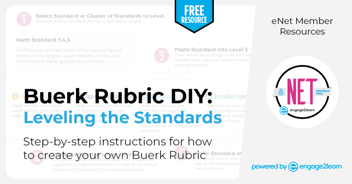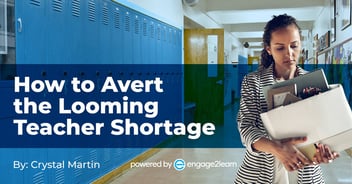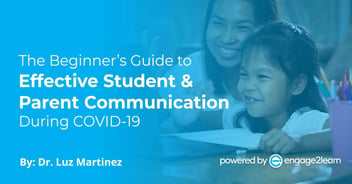Spring Break Reading List For Educators | engage2learn
Happy almost spring break, educators! We’re sure you aren’t short of ideas of how to spend the week. It’s a great time to relax and recharge before finishing the school year strong.
One great way to relax and practice self-care during spring break is to read.
Here’s what we’re reading for spring break! Add what you’re reading in the comments.
Spring Break Reading List for Educators
- Enhancing the Art & Science of Teaching with Technology by Sonny Magana: Successfully leverage technology to enhance classroom practices with this practical resource. The authors demonstrate the importance of educational technology, which is quickly becoming an essential component in effective teaching.
- The Tipping Point by Malcolm Gladwell: The tipping point is that magic moment when an idea, trend, or social behavior crosses a threshold, tips, and spreads like wildfire. Just as a single sick person can start an epidemic of the flu, so too can a small but precisely targeted push cause a fashion trend, the popularity of a new product, or a drop in the crime rate.
- The One Thing by Gary Keller: You want fewer distractions and less on your plate. The daily barrage of e-mails, texts, tweets, messages, and meetings distract you and stress you out. The simultaneous demands of work and family are taking a toll. And what’s the cost? Second-rate work, missed deadlines, smaller paychecks, fewer promotions–and lots of stress.
- Thanks For the Feedback by Douglas Stone: We swim in an ocean of feedback. Bosses, colleagues, customers—but also family, friends, and in-laws—they all have “suggestions” for our performance, parenting, or appearance. We know that feedback is essential for healthy relationships and professional development—but we dread it and often dismiss it.
- Teaching Digital Natives by Marc Prensky: Marc Prensky, who first coined the terms “digital natives” and “digital immigrants,” presents an innovative model that promotes student learning through the use of technology.
- A Beautiful Constraint by Adam Morgan: We live in a world of seemingly ever-increasing constraints, driven as much by an overabundance of choices and connections as by a scarcity of time and resources. How we respond to these constraints is one of the most important issues of our time and will be a large determinant of our progress as people, businesses and planet, in the future. A Beautiful Constraint calls for a more widespread capability for constraint-driven problem solving and provides the framework to achieve that.
- Sleeping With Your Smartphone by Leslie A. Perlow: Can’t resist checking your smartphone or mobile device? Sure, all this connectivity keeps you in touch with your team and the office—but at what cost?
- Scarcity by Sendhil Mullainathan & Eldar Shafir: Why do successful people get things done at the last minute? Why does poverty persist? Why do organizations get stuck firefighting? Why do the lonely find it hard to make friends? These questions seem unconnected, yet Sendhil Mullainathan and Eldar Shafir show that they are all examples of a mind-set produced by scarcity.
- The Secret Sauce by Kevin Ford: The authors call culture the secret sauce! Here authors Ford and Osterhaus describe the critical elements to culture that make a truly compelling organizational climate, providing organizations with the skills to develop the concepts of core ideology, organizational code, infrastructure, and brand.
- Mindshift by Barbara Oakley: Mindshift takes us deep inside the world of how people change and grow. Our biggest stumbling blocks can be our own preconceptions, but with the right mental insights, we can tap into hidden potential and create new opportunities.
- Mindset- Carol Dweck: After decades of research, world-renowned Stanford University psychologist Carol S. Dweck, Ph.D., discovered a simple but groundbreaking idea: the power of mindset.
- The Third Teacher by Cann Design: Created by an international team of architects and designers concerned about our failing education system, The Third Teacher explores the critical link between the school environment and how children learn, and offers 79 practical design ideas, both great and small, to guide reader’s efforts to improve our schools.
- The Growth Mindset Coach by Annie Brock: Created by teachers for teachers, this is the ultimate guide for unleashing students’ potential through creative lessons, empowering messages and innovative teaching. The Growth Mindset Coach provides all you need to foster a growth mindset
- Inside the Box by Drew Boyd: The traditional attitude toward creativity in the American business world is to “think outside the box”—to brainstorm without restraint in hopes of coming up with a breakthrough idea, often in moments of crisis. Sometimes it works, but it’s a problem-specific solution that does nothing to engender creative thinking more generally.
- 13 Things Mentally Strong People Do Not Do by Amy Morin: Increasing your mental strength can change your entire attitude. It takes practice and hard work, but with Morin’s specific tips, exercises, and troubleshooting advice, it is possible to not only fortify your mental muscle but also drastically improve the quality of your life.
But what if you’re too busy to read during spring break? What if you’re hitting the road and can’t read? Or maybe you’re trying to catch up on some things around the house and don’t have the extra time to sit with a book?
Don’t worry! Learning isn’t limited to books. In addition to these great reads, educators can check out these great podcasts. Better yet, these podcasts are aligned to e2L’s LIFe Ready Skills.
Don’t worry! Learning isn’t limited to books. Click To TweetSpring Break Podcasts for Educators
Growth Mindset
- Nudge: It’s hard to change habits, but a gentle push can move us in the right direction. This episode, TED speakers offer deceptively simple “nudges” for managing our kids, our health, and our aspirations.
- Playing with Perceptions: Where do stereotypes come from? Why do some perceptions persist, and is there any truth or value to the assumptions we make? In this hour, TED speakers examine the consequences of stereotypes.
- Keeping a Running List of Your Favorite Things
Communication
- The Act of Listening: Listening — to loved ones, strangers, faraway places — is an act of generosity and a source of discovery. In this episode, TED speakers describe how we change when we listen deeply.
- Trust and Consequences: Our lives are fueled by trust: in our loved ones, our colleagues, our leaders. But how do we cultivate it, and restore if it’s lost? In this episode, TED speakers explore our relationship with trust.
- A Google Assistant in the Classroom: Explore how machine learning works. Teach a machine using your camera – live in the browser, no coding required. It learns by training and running neural nets right in the browser.
Collaboration
- Why We Collaborate: In this hour, TED speakers unravel ideas behind the mystery of mass collaborations that build a better world.
- The Culture Inside
Creativity
- Reinventing Creative Thinking: Thinking out of the box. It’s one of the most cited strategies for thinking innovatively. Corporate philosopher and Luc de Brabandere pondered exactly what was happening in our minds when we engaged in such activity, and here shares his own fresh perspective on this strategy. He argues that the most incredible ideas don’t come from just thinking beyond the perimeter of our current perception…but of relocating our minds to an entirely different box, where preconceived ideas don’t limit imagination.
- The Unknown Brain: The brain can seem as mysterious as a distant galaxy, but scientists are starting to map and manipulate its many regions. In this hour, TED speakers take us on a trip through the human brain.
- Simple Solutions: Sometimes, the best solutions to complex problems are simple. But simple doesn’t always mean easy. This hour, TED speakers describe the innovation and hard work that goes into achieving simplicity.
- The Problem with the Solution: We are naturally drawn to finding solutions. But are there ever problems we shouldn’t try to solve? Lulu Miller visits a town in Belgium with a completely different approach to dealing with mental illness. Families in the town board people – strangers – with severe mental illnesses in their homes, sometimes for decades. And it works, because they are not looking to cure them
Critical Thinking
- What’s Between You and Your Goals
- Frame of Reference: What shapes the way we perceive the world around us? A lot of it has to do with invisible frames of reference that filter our experiences and determine how we feel. Alix Spiegel and Hanna Rosin interview a woman who gets a glimpse of what she’s been missing all her life – and then loses it. And they talk to Daily Show correspondent Hasan Minhaj about which frame of reference is better – his or his dad’s
- The Personality Myth: We like to think of our own personalities – and those of our spouses, children and friends – as predictable and constant over time. But what if they aren’t? In this episode, Alix Spiegel visits a prison to explore whether there is such a thing as a stable personality. And Lulu Miller asks whether scientists can point to a single thing about a person that doesn’t change over time. The answer might surprise you.
Professional Ethics
- The Meaning of Work: Love it or hate it, most of us have to work for a living. So how can we make work more meaningful? This hour, TED speakers explore our values and motivations when it comes to the workplace.
- “Busted” Ep 1: The Poverty Tour: This is a series exploring how our understanding of poverty is shaped not by facts, but by private presumptions, media narratives, and the tales of the American Dream.
- The Problem We All Live With- Part 1: Ira speaks with NYTimes Magazine Reporter about her years reporting on education and the various kinds of school reforms administrators have tried to close the achievement gap that never seems to work. Nicole says there’s one reform that people have pretty much given up on, despite a lot of evidence that it works: school integration.
Autonomy
- You Do You
- Happier Podcast: Rebel
- Happier Podcast: Obliger
- Happier Podcast: Questioner
- Happier Podcast:Upholder
Do you have a favorite podcast that isn’t listed here? Let us know in the comments!
However you choose to spend your spring break, be sure to make time just for you. What’s on your reading or listening list?



